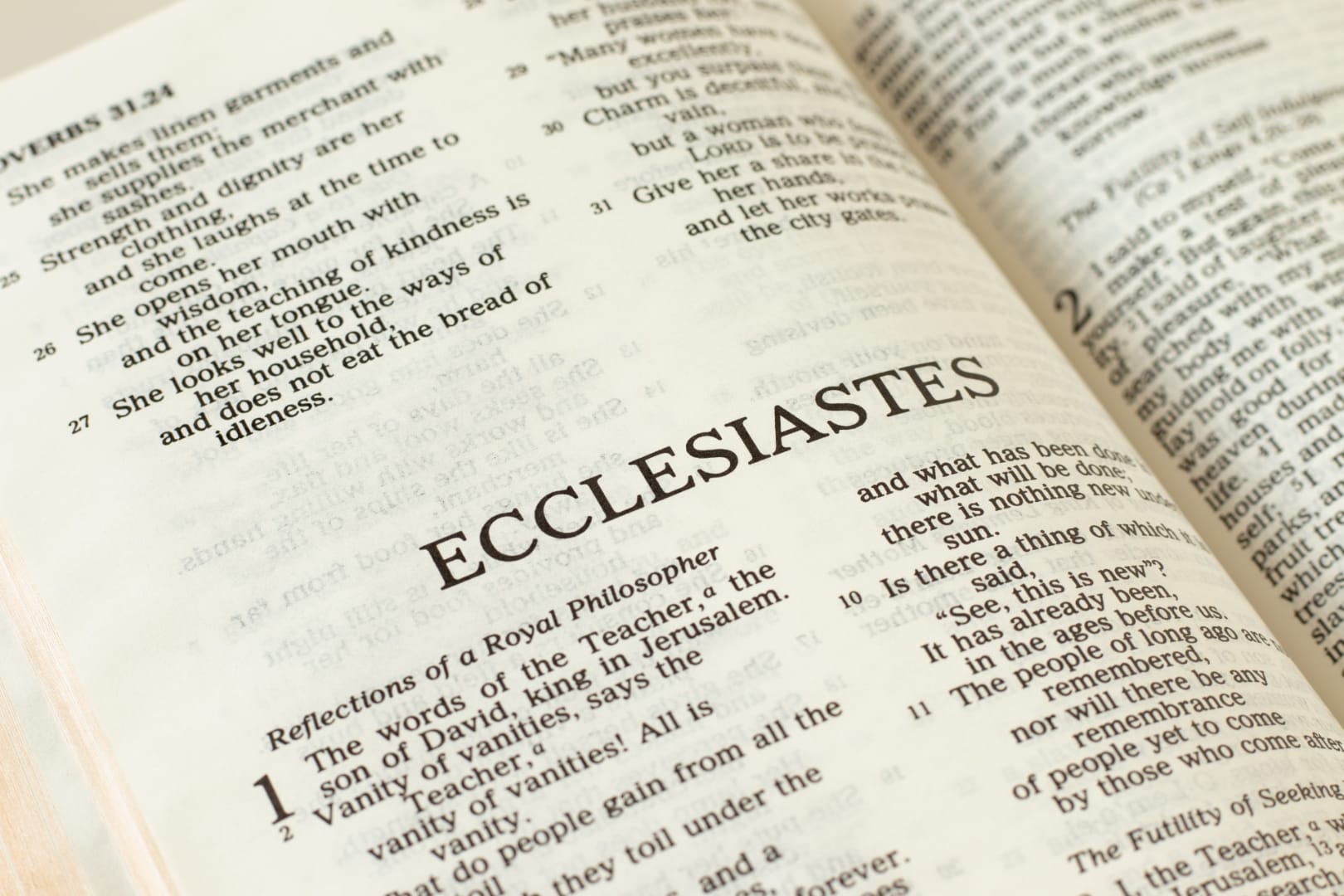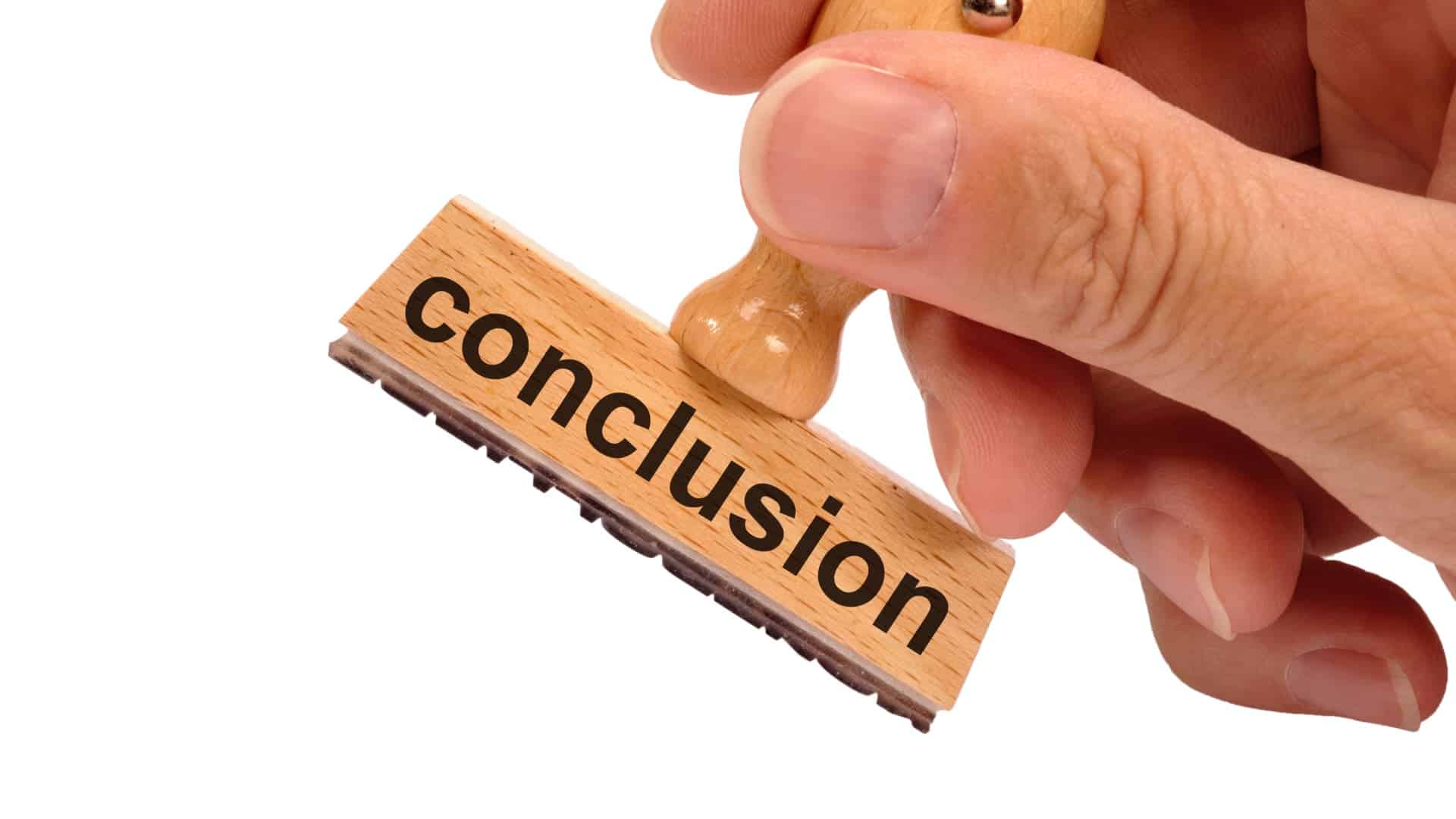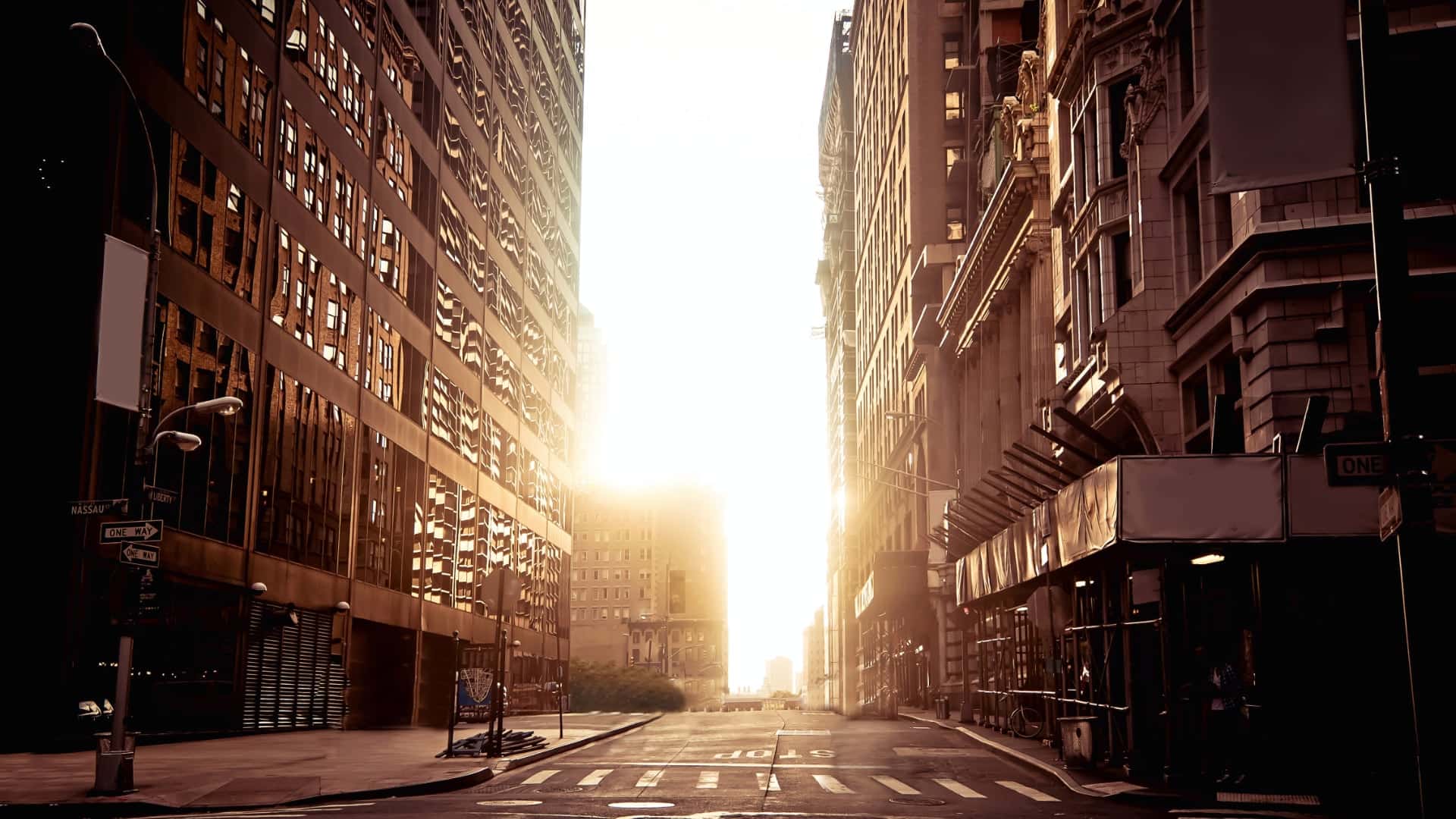Be Bold and Wise (Ecclesiastes 11:1-6)

If you travel to Cairo, Egypt, you can visit an abandoned graveyard at the end of a garbage-lined alley. And if you look carefully at that graveyard, you’ll come across one tombstone in particular. The tombstone is for William Borden (1887-1913). You wouldn’t expect this grave to belong to anyone important, but you’d be wrong. William Borden was educated at Yale and Princeton. He became a Christian under the ministry of the great evangelist D.L. Moody. He was heir to the Borden dairy estate, which was a fortune. But William Borden gave it all away out of a desire to share the gospel with those who had never heard it.
So Borden decided to become a missionary to the Muslims of China. He was a millionaire by the time he was 21, but he gave it all away to missions. His father told him he would never work in the company again. Borden traveled to Egypt for his missionary training, but while he was there he contracted spinal meningitis and died at the age of 25, before he had even reached his mission field. And really all that’s left of his life is this gravestone in an abandoned cemetery at the end of a garbage-lined alley. Borden risked everything, and he lost everything as a result.
We’re looking today at the book of Ecclesiastes, and the story I just told really seems to belong with this book. It’s depressing! The story that I just told could be used as an incentive to play it safe. See what happens when you take a risk? Look at what happened to William Borden! That’s what happens if you go into missions! I could tell you all kinds of stories that would make you retreat from life and play things completely safe and never take any risks at all.
When our kids were young, Charlene told them a story about a lady who was eating chicken. I’m not quite sure about all the details of the story, but I think the story involved choking on a chicken bone and almost dying. To this day our kids are cautious when eating chicken that contains any bones. Who knew that eating at Swiss Chalet could be so dangerous? It’s easy to conclude that we should just retreat to safety and never take any risks at all.
In 1927, a small fire took place at a theatre in Montreal. 800 children were watching a movie. When smoke began to fill the theatre, the kids panicked. 78 children died. The next year they passed a law that children under 16 would be forbidden from attending theaters screenings. The law stayed on the books for 33 years.
Life is uncertain. Missionaries die. People choke on bones. Kids die in theaters. Maybe we should agree right here and now that nobody should ever be a missionary, we should never eat chicken, and no more movies for our kids!
That’s what we’re looking at in the passage we have before us. Multiple times in this passage, the Teacher tells us that we don’t know what’s going to happen in life. Because we don’t know what’s going to happen, how then should we live? Should we play it safe, or take risks?
That’s the question the Teacher answers. And he says two things.
First, he says, take wise risks.
In the light of the risks of life, should we take risks or play it safe? The Teacher answers in verse 1:
Cast your bread upon the waters,
for you will find it after many days.
What does this mean? It obviously doesn’t mean getting soggy pieces of bread back that you’ve thrown into the waves. The new edition of the NIV puts it this way:
Ship your grain across the sea;
after many days you may receive a return.
You see what the Teacher is saying here? Life is risky. The world is uncertain. There are all kinds of ways that we can take risks and end up losing everything. When Ecclesiastes was written, Israel had been transformed from a small agricultural nation to one that was right on the trading route between Egypt and Asia/Europe. Some Israelites had already lost fortunes. In chapter 5, the Teacher had already talked about someone who had lost everything in a bad venture. So what should we do? In verse 1, the Teacher tells us to take a risk. Engage in international trade, and wait for the goods to sell, and the ships to return with fine goods from foreign lands. Nothing ventured, nothing gained. To “find it after many days” is to receive the reward that comes after risking a wise investment. Get out there and make something happen, the Teacher says.
Verse 2 continues the thought, but adds a condition:
Invest in seven ventures, yes, in eight;
you do not know what disaster may come upon the land.
Here again you have the element of risk. You probably follow what he’s teaching here: don’t put all of your eggs in one basket. Diversify your investments. Don’t withdraw from investing, because then you’ll lose out on any potential gain. Don’t just invest in one or two ventures, because they could fail, and if they fail you lose everything. Invest in seven or eight ventures. Some of them are bound to fail, but some of them may do well, and may be more than enough to make up for what you could lose. Take risks, but take them wisely.
He’s emphasizing how risky all of this is, but he gives us some perspective in the next verse:
If clouds are full of water,
they pour rain on the earth.
Whether a tree falls to the south or to the north,
in the place where it falls, there it will lie.
Here’s what he’s saying. We know some things. If the clouds are full of water, it’s going to rain at some point. If a tree falls, you may not know which way it’s going to fall, but once it’s fallen it’s not getting back up. There are some things we can know for sure. This makes it even more important for us to make wise investments, because if we carefully study how things should work, then we should know that some things work better than others.
We’re going to apply this in a minute, but let’s look first at the second thing that he tells us. He’s told us to invest boldly and wisely. Now he tells us what not to do.
Second, don’t wait for perfect conditions.
This is what he tells us in verse 4:
Whoever watches the wind will not plant;
whoever looks at the clouds will not reap.
Some people don’t struggle with taking too many risks. Some people are so risk-averse that they wait for conditions to be perfect before they try anything.
The picture the Teacher gives us is of a farmer waiting for perfect conditions in which to plant. It’s important to pay attention to conditions. Even today farmers will study clouds or watch the weather channel. Back when this was written, the ideal conditions for sowing would be when there was minimal wind. That way you could scatter the seeds evenly over the field. But you could get carried away and never scatter the seed because the conditions were never good enough. At some point, you have to take the risk. At some point, you just have to scatter the seed.
Do you see the picture that the Teacher is developing here? Take risks, but take them wisely. Don’t wait for perfect conditions. If you wait for perfect conditions then you’ll never do anything, because the perfect conditions may never materialize. Take a chance, not just in business but in life. If you don’t take a risk, you won’t ever do anything with what God has given you.
Here’s the conclusion, in verses 5 and 6:
As you do not know the path of the wind,
or how the body is formed in a mother’s womb,
so you cannot understand the work of God,
the Maker of all things.
Sow your seed in the morning,
and at evening let your hands not be idle,
for you do not know which will succeed,
whether this or that,
or whether both will do equally well.
We don’t know a lot, the Teacher says. We don’t know what God will prosper, or what will fail. So don’t let that stop you from doing something. Let that be the very reason that you get out there and make things happen. Sow your seed in the morning. Get to work in the evening. Take a risk. God is sovereign, and it just may be that he uses something that you do.
This is so important that Jesus said a similar thing. In Matthew 25, Jesus told a story about servants who were given money to invest on behalf of their master. Some invested very well and were commended by the master. But one servant played it safe because he didn’t want to take any risks. The master was incredibly harsh. He squandered the opportunity he had to do something with what his master had given him.
So What?
This may be one of the easiest passages in Ecclesiastes to explain, but one of the hardest to apply.
Life and ministry are risky. There are risks everyday. There are risks in using the gifts that God has given us. There’s a risk to sharing our faith. There’s a risk in having children. There’s a risk in giving financially to support ministries. There’s risk in going to the mission field. There’s risk in almost everything that we do.
We are prone to play it safe. Whenever we look at Scripture, it’s good to ask what part of our fallen natures this particular passage addresses. In this case, I think this passage is confronting our fears. We are prone to fear. I don’t think of myself as a fearful person. Last year, through a series of events, God revealed to me that I am much more fearful than I had ever imagined myself to be. It was a revelation that I didn’t welcome at first, but I’m glad that God revealed some of my fears to me. We can spend our entire lives running scared, more fearful of events and people than we are of God.
God calls us to live lives of holy boldness. If you look at Matthew 25, Jesus is calling us to wisely risk what God has given us to profit our master – God. God is calling us to wisely invest our lives to his glory. One day we will give account to God for what we’ve done with what he’s given us. Jesus makes it clear that we won’t be able to say that we just played it safe. So let me ask you: what has God called you to do that you haven’t done because of fear?
Finally, we need to see that the results are in his hands. We are not in charge of results. We are in charge of being faithful with what God has given us. The rest is up to God.
I began with the story of William Borden. He risked, and it looked like he lost. After his death, Borden’s Bible was found and given to his parents. In it they found in one place the words “No Reserve” and a date placing the note shortly after he renounced his fortune in favor of missions. At a later point, he had written “No Retreat”, dated shortly after his father told he would never let him work in the company ever again. Shortly before he died in Egypt, he added the phrase “No Regrets.” Borden risked, but he risked appropriately.
I could speak of other missionaries. Missionary Karen Watson was killed in Iraq. She wrote this letter in 2003, almost a year to the day before she was killed.
Dear Pastor Phil and Pastor Roger:
You should only be opening this letter in the event of my death.
When God calls there are no regrets. I tried to share my heart with you as much as possible, my heart for the nations. I wasn’t called to a place. I was called to him. To obey was my objective, to suffer was expected, his glory my reward, his glory my reward.
One of the most important things to remember right now is to preserve the work….I am writing this as if I am still working with my people group.
I thank you all so much for your prayers and support. Surely your reward in heaven will be great. Thank you for investing in my life and spiritual well-being. Keep sending missionaries out. Keep raising up fine young pastors.
In regards to any service, keep it small and simple. Yes, simply, just preach the gospel….Be bold and preach the life-saving, life-changing, forever-eternal gospel. Give glory and honor to our Father.
The Missionary Heart:
Care more than some think is wise.
Risk more than some think is safe.
Dream more than some think is practical.
Expect more than some think is possible.
I was called not to comfort or success but to obedience….There is no joy outside of knowing Jesus and serving him. I love you two and my church family.
In his care,
Salaam,
Karen
I could even remind you that nobody really knows the impact of the actions they’ve taken. Luke Short was 103 when he thought of a sermon that he once heard. Sitting in Virginia, he asked God to forgive his sins through Jesus Christ. He died three years later at 106. His tombstone read, “Here lies a babe in grace, aged three years, who died according to nature, aged 106.” But here’s the remarkable part: the sermon that he remembered that caused him to become a Christian that day was one that he had heard 85 years earlier across the ocean in England. Nearly a century had passed between the preaching of his sermon and the conversion; between the sowing and the reaping. You never know what God might do.
Because we don’t know what God will prosper, use every opportunity to live wisely and boldly. Sow your seed in the morning, and at evening let your hands not be idle, because you never know what God may prosper.
Therefore, my beloved brothers, be steadfast, immovable, always abounding in the work of the Lord, knowing that in the Lord your labor is not in vain. (1 Corinthians 15:58)





